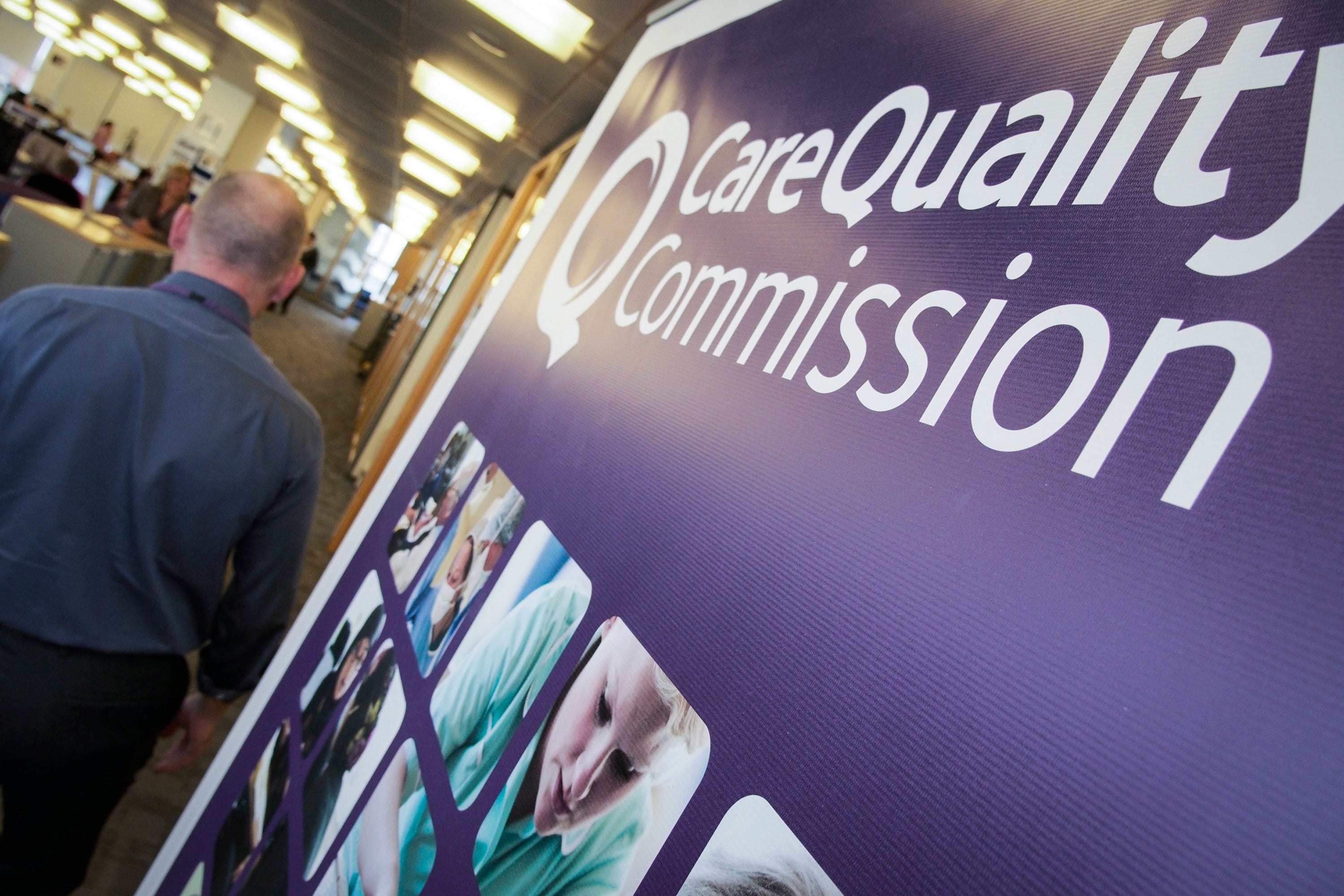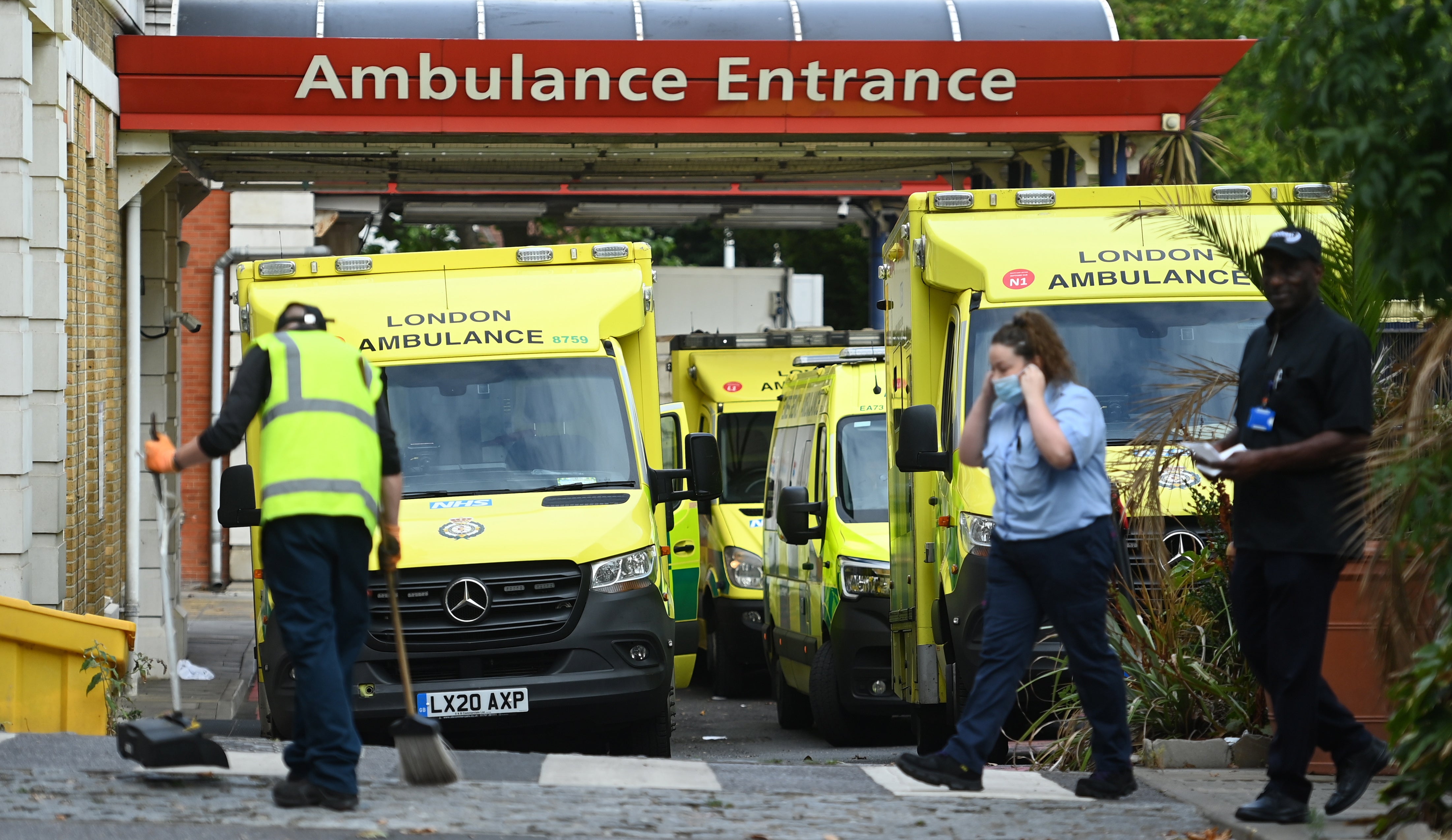Maternity services standards at record low level as care watchdog warns of ‘systemic’ NHS failings
NHS and social care ‘struggling to cope’ as care regulator CQC forced to take action after one in four inspections

Your support helps us to tell the story
From reproductive rights to climate change to Big Tech, The Independent is on the ground when the story is developing. Whether it's investigating the financials of Elon Musk's pro-Trump PAC or producing our latest documentary, 'The A Word', which shines a light on the American women fighting for reproductive rights, we know how important it is to parse out the facts from the messaging.
At such a critical moment in US history, we need reporters on the ground. Your donation allows us to keep sending journalists to speak to both sides of the story.
The Independent is trusted by Americans across the entire political spectrum. And unlike many other quality news outlets, we choose not to lock Americans out of our reporting and analysis with paywalls. We believe quality journalism should be available to everyone, paid for by those who can afford it.
Your support makes all the difference.The UK’s care watchdog has raised “deep concerns” as two in five maternity services are now deemed not good enough, a new report reveals.
The Care Quality Commission says maternity services are getting worse, with inspectors “time and again” finding issues with the leadership and culture within units.
The CQC’s warning comes days after a review into maternity failings at East Kent NHS Hospitals Trust found poor care had led to the deaths of 45 babies over a decade.
The regulator’s annual State of Care report, published Friday, also said that historic underinvestment in health and social care has led to a “gridlocked” system.
Have you been affected by this story? If so email rebecca.thomas@independent.co.uk
It is getting even tougher to access care, the Care Quality Commission (CQC) said, warning that chronic staff shortages were making the problem worse
CQC chief executive Ian Trenholm said the recruitment challenge trusts face “is going to translate into real difficulty” this winter and in the years ahead.
The CQC boss said one-quarter of inspections resulted in enforcement action against a provider, adding this was a signal that services are struggling to cope.
Mr Trenholm said the impact of the gridlock is that people are struggling to see their GP or dentist, wait for longer to get to hospital, and once there can become stuck due to a lack of social care to help them once they are ready to leave.
The report warns staff shortages across NHS and social care services are driving the current problems and in some examples having a “severe impact” on people’s human rights.
Responding to the report, NHS Providers’ interim chief executive Saffron Cordery said: “The regulator’s hard-hitting report makes clear that people’s care is affected by chronic staff shortages across the health and care system and must be a wake-up call for the government.
“At a time when the government ought to be focussed on fixing the big issues and problems affecting the NHS and social care, and ultimately patients, the backdrop of political confusion and uncertainty is a worrying diversion.
“Inadequate funding for and lack of capacity in social care have serious knock-on effects on an overloaded NHS. People need support to stay well and live independently in the community which would in many cases prevent, or delay, the need for hospital care.”
Worsening maternity services
Data shared by the CQC showed that as of July 2022 6 per cent of maternity services were rated “inadequate” and 32 per cent were rated “requires improvement”.
Ratings for safety, for which 6 per cent are rated inadequate and 47 per cent require improvement, are the worst since a maternity category was first introduced in 2018.
The regulator said its data showed the “quality of maternity services is getting worse”.

Pointing to reports which show black women are four times more likely than white women to die in pregnancy or childbirth, Mr Trenholm said: “[It is] simply unacceptable in this day and age for black women to have a such a bad experience of care in comparison to white women.”
Inspectors speaking with maternity staff and senior NHS leaders were told “staffing shortages and pressures”, the need to meet targets and “insufficient” funding were directly affecting their ability to improve the safety of services.
‘The risk to people is increasing’
Other areas in which the CQC said it had specific concerns included learning disability and autism services and mental health services for children.
The report highlighted the crisis at urgent and emergency care services with inspectors citing examples of a care home patient waiting for eight hours for an ambulance following a fall.
It said: “Only two in five people are able to leave hospital when they are ready to do so, contributing to record-breaking waits in emergency departments following a decision to admit, and dangerous ambulance handover delays.”
“At every point along this urgent care pathway, the risk to people is increasing.”

The report highlighted worsening staff shortages across NHS and social care services and said without action to retain staff, harm to patients would increase.
The regulator argued the problems facing services were linked to “historical underinvestment” and a “lack of sustained recognition and reward for the social care workforce”.
The report added: “During our inspections, we have seen the effect of staff shortages, such as a lack of midwife leaders causing inconsistent practice and difficulty in embedding a good culture. In some cases, staff shortages can have a severe impact on people’s human rights.”
It cited one example where shortages drove an increase in restraint in mental health services in the northwest with staff removing walking frames from people when they sat down “so they were unable to get up and move around, and the locking of corridors and other areas of a service”.
The CQC chief also warned of severe shortages impacting adult social care, resulting in-home care providers handing back contracts and reducing hours.
His words come after chancellor Jeremy Hunt is reported to have made plans to regain the government’s promise to cap social care costs.
A Department of Health and Social Care spokesperson said: “The Care Quality Commission’s report identifies the same priorities for improvement set out by the health and social care secretary in Our Plan for Patients.
“The plan – ABCD – is designed to address ambulance pressures, bust the backlog, support care and discharge from hospital and improve access to doctors and dentists.”
An NHS spokesperson said: “Despite improvements to maternity services over the last decade – with significantly fewer stillbirths and neonatal deaths – we know that further action is needed to ensure safe care for all women, babies and their families.”



Join our commenting forum
Join thought-provoking conversations, follow other Independent readers and see their replies
Comments